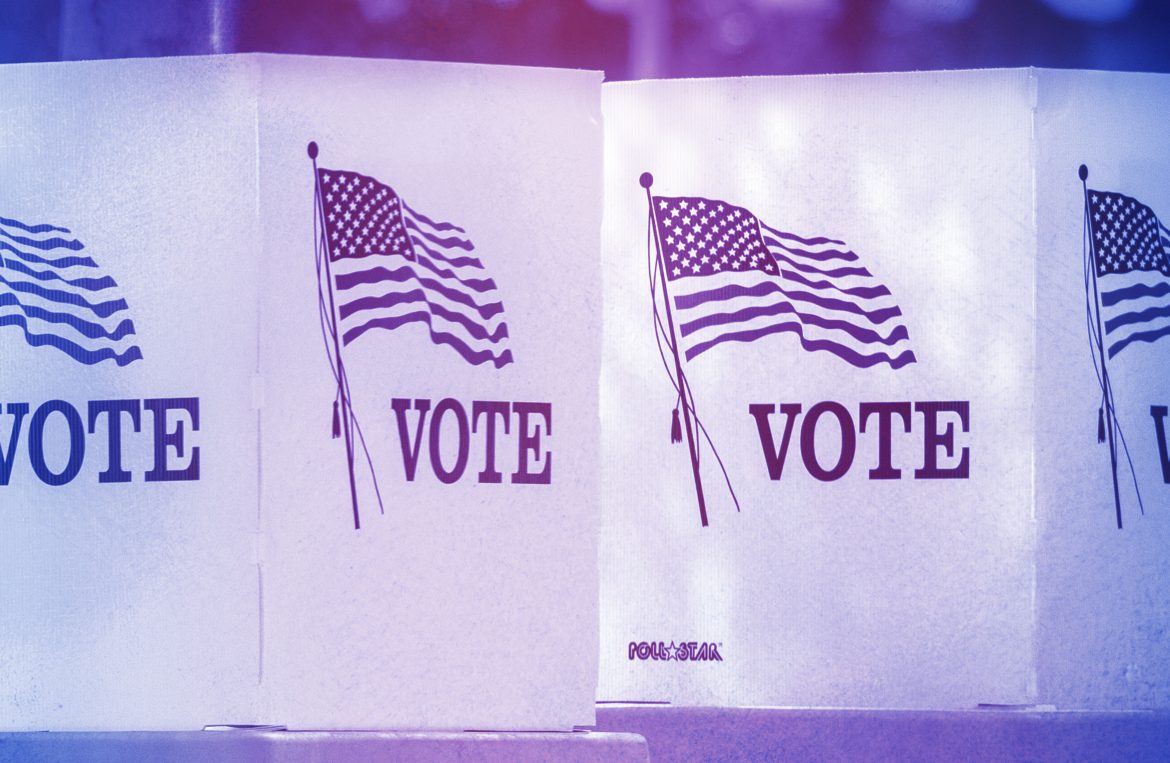By Sophie Beckman and Grace Armann
The midterm elections are coming up on Tuesday, Nov. 8. These are held every two years at the midpoint of a president’s term. In New York, local, statewide and congressional offices are on the ballot. This election will determine the balance of power in Congress and, to a certain extent, what the next two years of Joe Biden’s presidency will look like — but it will also impact each community and municipality in the country.
Despite the importance of their voices, college students historically have low voter turnout. At Stony Brook University, less than 37% of students voted in the 2018 midterm election. Stony Brook has a diverse population of over 20,000 students who are impacted by a variety of issues every day.
To gain insight on how important it is for students to vote, we spoke with Ashley Mercado, the assistant director of the Center for Civic Justice (CCJ) at Stony Brook.
Before her position with CCJ, Mercado worked and volunteered on political campaigns, often doing door-to-door canvassing work. Mercado received her master’s degree in social work from Stony Brook University, and her background in social work helped her realize her passion for mobilizing people to vote and be active in their communities. In her current role, she seeks to help students understand why their individual voices matter in politics — especially in the upcoming election.
Why is it so important for young people to vote?
I think regardless of whether it directly impacts you or not, it’s important to understand what’s going on in the world. Maybe policy decisions don’t impact you every single day, but they likely impact someone else every single day — maybe even someone you know or care about, and that’s something that I was seeing as a social worker. Understanding what’s going on in the world makes you a more empathetic person, aside from what’s just going on in your own personal bubble. When we talk to students and ask them to tell us an issue that they care about, it’s very easy to tie something that you’re interested in back to why being an advocate or understanding the intricacies of issues is important. We try to make it as personal as possible, to find something that students might care about. Voting allows you to pay attention to issues that matter to you and understand what your values are.
Besides voting, what can college students do to be civically active?
For a lot of people, voting is something that’s a once-every-four-years situation, and participating in the presidential election is the only thing at the forefront of the conversation. Something we’re trying to do is advocate for people to be more present in local elections. Federal policies aren’t always what impact your day-to-day life, but the flooding on your block, the potholes on your entire route to work, the local waterways — those decisions aren’t being made by your president. Those are being made right here in your community, and those people are more available for a phone call, for a meeting, for reading your letters. Your representatives are there to do exactly that: to represent you and your community. It’s more than just electing them and hoping they do what you think. They reflect their decisions on what best suits their community, and the easiest way for them to do that is for you to tell them — whether it’s emailing, hopping on a Zoom, going to an event they’re hosting or going to a town hall.
Being an advocate also doesn’t have to be tied to your elected officials — it can be attending a protest or showing up to a march that’s in line with your views. Also, volunteering in your community. It doesn’t have to be as political as some people think. Volunteering at a food bank, volunteering to do a highway cleanup — there are so many things that affect your community that add to the betterment of those around you. You can still be an advocate in your community besides just voting.
How can students and younger generations feel empowered to vote, even if it feels daunting?
Following such an exhausting election as 2020 was, sometimes it just feels daunting to participate in the process. Maybe you’re not as well educated on the types of things that your state senator does, so you feel like you’re just not going to participate in the process since you don’t have the time or the bandwidth to research the candidates. A big part is education — voting is a less intense experience if you understand who does what, and unfortunately, a lot of that isn’t taught in school. People have a general understanding that there are three branches of government and they all do different things, but in terms of what your congressman does versus your legislator, versus your governor, that’s more outside of the scope of what a lot of students know.
Candidates start posting their platforms early. Space it out as much as you can, think about what’s upcoming in the next election and look into the candidates. See what types of issues they would be legislating on so that you have a better understanding. Find the main things that you really care about and do a Google search on that — it’ll help make it less overwhelming to understand who does what.
What else is important for students to know?
Turnout in local elections is historically low, but it’s those that really make a difference. From a local perspective, candidates can win or lose by 40 votes. You actually can have more of a say, you can get in contact with officials and have conversations with them about issues that matter to you.
Following the 2020 presidential election, college students have been voting at record levels. Nationally, 66% of the students who were registered to vote in 2020 casted ballots during that presidential election. It’s extremely important to keep this momentum up, especially here at Stony Brook, where students are affected by a plethora of issues.
If you feel passionate about issues like climate change, abortion access or accessible education, voicing your opinion in the midterm elections is crucial.
Voting can be a daunting and intimidating process. Check out the infographic below for important information and dates to keep in mind for this upcoming election.
Infographic by Jane Montalto
Use this link to find your polling location for in-person voting. If you are registered at your on-campus address, you can vote at the Student Union ballroom on Nov. 8.
Use this link to apply for an absentee ballot. Send in your request by Oct. 24, and return your filled-in ballot in-person or by mail by Nov. 8.
You can always stop by the Center for Civic Justice in Student Union Suite L-20 if you have any questions, or send an email to civicjustice@stonybrook.edu.




Comments are closed.